Environment and Spirituality 2
Spiritual reflections on our relationship with nature
Course prepared by Arthur Dahl
The country is the world of the soul
Bahá'u'lláh loved the beauty and verdure of the country. One day He passed the remark: 'I have not gazed on verdure for nine years. The country is the world of the soul, the city is the world of bodies.'
('Abdu'l-Bahá, in J. E. Esslemont, Bahá'u'lláh and the New Era. Chpt. 3, p. 35)
The reality of man

Man is endowed with an outer or physical reality.... The human body is like animals subject to nature’s laws. But man is endowed with a second reality, the rational or intellectual reality; and the intellectual reality of man predominates over nature.
('Abdu'l-Bahá, Foundations of World Unity, p. 38)
Spiritual reality
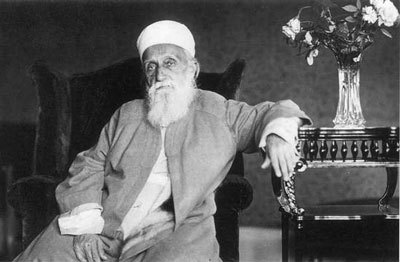
Yet there is a third reality in man, the spiritual reality.... That celestial reality… delivers man from the material world. Its power causes man to escape from nature’s world. Escaping, he will find an illuminating reality, transcending the limited reality of man and causing him to attain to the infinitude of God, abstracting him from the world of superstitions and imaginations, and submerging him in the sea of the rays of the Sun of Reality.
('Abdu'l-Bahá, Foundations of World Unity, p. 38)
Religion and science
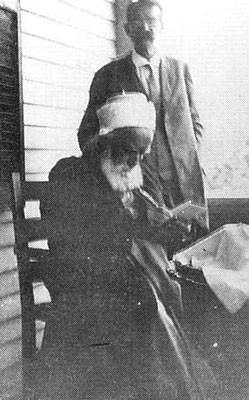
Religion and science are the two wings upon which man’s intelligence can soar into the heights, with which the human soul can progress. It is not possible to fly with one wing alone!
Should a man try to fly with the wing of religion alone he would quickly fall into the quagmire of superstition, whilst on the other hand, with the wing of science alone he would also make no progress, but fall into the despairing slough of materialism.
‘Abdu’l-Bahá, Paris Talks, p. 143
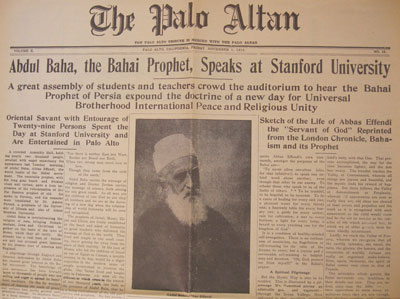 .
. 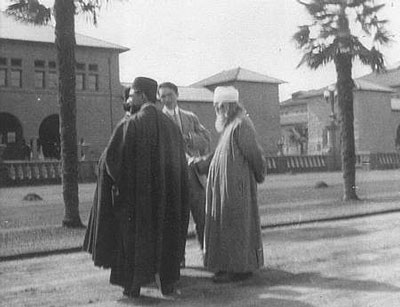
The greatest attainment in the world of humanity has ever been scientific in nature. It is the discovery of the realities of things. Inasmuch as I find myself in the home of science – for this is one of the great universities of the country and well known abroad – I feel a keen sense of joy.
The highest praise is due to men who devote their energies to science, and the noblest center is a center wherein the sciences and arts are taught and studied.
‘Abdu’l-Bahá at Stanford ’University. California, 1912. Promulgation of Universal Peace, p. 348
Inasmuch as the fundamental principle of the teachings of Bahá’u’lláh is the oneness of the world of humanity, I will speak to you upon the intrinsic oneness of all phenomena….
Fundamentally all existing things pass through the same degrees and phases of development, and any given phenomenon embodies all others.
‘Abdu’l-Bahá at Stanford ’University.California, 1912. Promulgation of Universal Peace, p. 349
Nature
Nature is God’s Will
Nature is God's Will and is its expression in and through the contingent world.
(Bahá'u'lláh)
By nature is meant those inherent properties and necessary relations derived from the realities of things. And these realities of things, though in the utmost diversity, are yet intimately connected one with the other.
'Abdu'l-Bahá, Letter to Professor Auguste Forel

This nature is subjected to an absolute organization, to determined laws, to a complete order and to a finished design, from which it will never depart - to such a degree, indeed, that if you look carefully and with keen sight, from the smallest invisible atom up to such large bodies of the world of existence as the globe of the sun or the other great stars and luminous spheres, whether you regard their arrangement, their composition, their form or their movement, you will find that all are in the highest degree of organization....
('Abdu'l-Bahá, Paris Talks)
Respect for the earth
Every man of discernment, while walking upon the earth, feeleth indeed abashed, inasmuch as he is fully aware that the thing which is the source of his prosperity, his wealth, his might, his exaltation, his advancement and power is, as ordained by God, the very earth which is trodden beneath the feet of all men. There can be no doubt that whoever is cognizant of this truth, is cleansed and sanctified from all pride, arrogance, and vainglory.
(Bahá'u'lláh 1891)
The creation
When... thou dost contemplate the innermost essence of all things, and the individuality of each, thou wilt behold the signs of thy Lord's mercy in every created thing, and see the spreading rays of His Names and Attributes throughout all the realm of being.... Then wilt thou observe that the universe is a scroll that discloseth His hidden secrets, which are preserved in the well-guarded Tablet. And not an atom of all the atoms in existence, not a creature from amongst the creatures but speaketh His praise and telleth of His attributes and names, revealeth the glory of His might and guideth to His oneness and His mercy....
('Abdu'l-Baha, Selection from the Writings of ‘Abdu’l-Bahá, 19)
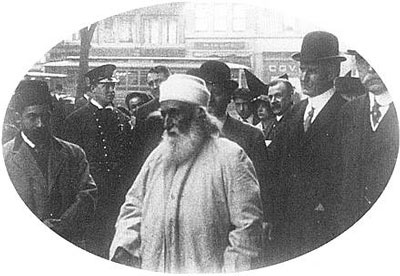
And whensoever thou dost gaze upon creation all entire, and dost observe the very atoms thereof, thou wilt note that the rays of the Sun of Truth are shed upon all things and shining within them, and telling of that Day-Star's splendours, Its mysteries, and the spreading of Its lights. Look thou upon the trees, upon the blossoms and fruits, even upon the stones. Here too wilt thou behold the Sun's rays shed upon them, clearly visible within them, and manifested by them.
('Abdu'l-Baha, Selection from the Writings of ‘Abdu’l-Bahá, 19)
Evolution
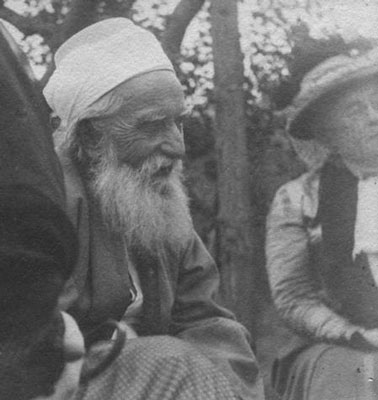
Just as man progresses, evolves, and is transformed from one form and appearance to another in the womb of the mother, while remaining from the beginning a human embryo, so too has man remained a distinct essence—that is, the human species—from the beginning of his formation in the matrix of the world, and has passed gradually from form to form.
('Abdu'l-Bahá, Some Answered Questions, ch. 49, p. 223)
...the growth and development of all beings proceeds by gradual degrees. This is the universal and divinely ordained law and the natural order.
('Abdu'l-Bahá, Some Answered Questions, ch. 51, p. 229)
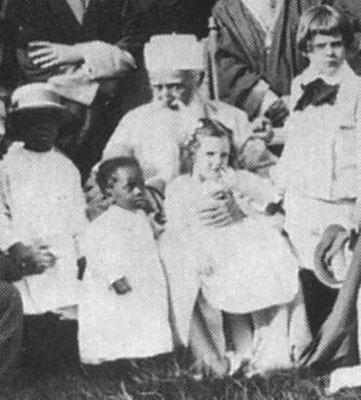
All beings, whether universal or particular, were created perfect and complete from the beginning. The most one can say is that their perfections only become apparent gradually. The law of God is one; the evolution of existence is one; the divine order is one. All beings great and small are subject to one law and one order.
('Abdu'l-Bahá, Some Answered Questions, ch. 51, p. 229)
Ecology
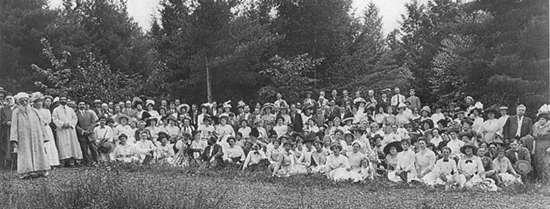
All these endless beings which inhabit the world, whether man, animal, vegetable, mineral - whatever they may be... are connected together like a chain, and reciprocal help, assistance, and influence belonging to the properties of things, are the causes of the existence, development and growth of created beings.
('Abdu'l-Bahá, Some Answered Qustions, chpt. 46)
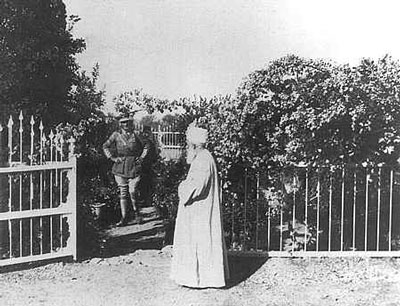
In the physical realm of creation, all things are eaters and eaten: the plant drinketh in the mineral, the animal doth crop and swallow down the plant, man doth feed upon the animal, and the mineral devoureth the body of man. Physical bodies are transferred past one barrier after another, from one life to another, and all things are subject to transformation and change, save only the essence of existence itself - since it is constant and immutable, and upon it is founded the life of every species and kind, of every contingent reality throughout the whole of creation..
('Abdu'l-Bahá, Selections from the Writings of 'Abdu'l-Bahá, 137, p. 157)
Consider for instance how one group of created things constituteth the vegetable kingdom, and another the animal kingdom. Each of these two maketh use of certain elements in the air on which its own life dependeth, while each increaseth the quantity of such elements as are essential for the life of the other. In other words, the growth and development of the vegetable world is impossible without the existence of the animal kingdom, and the maintenance of animal life is inconceivable without the co-operation of the vegetable kingdom. Of like kind are the relationships that exist among all created things.
('Abdu'l-Bahá, in Compilation on Huququ'llah, p. 14-15; Compilation on Social and Economic Development, p. 12))
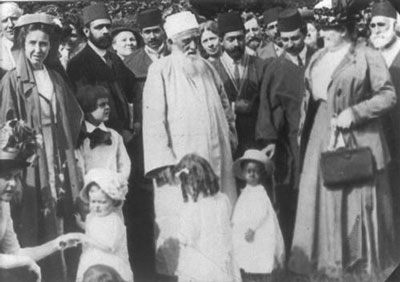
...co-operation and reciprocity are essential properties which are inherent in the unified system of the world of existence, and without which the entire creation would be reduced to nothingness.
('Abdu'l-Bahá, in Compilation on Huququ'lláh, p. 14-15; Compilation on Social and Economic Development, p. 12
Diversity

Consider the world of created beings, how varied and diverse they are in species, yet with one sole origin. All the differences that appear are those of outward form and colour. This diversity of type is apparent throughout the whole of nature.... Let us look... at the beauty in diversity, the beauty of harmony, and learn a lesson from the vegetable creation. If you behold a garden in which all the plants were the same as to form, colour and perfume, it would not seem beautiful to you at all, but, rather, monotonous and dull.
('Abdu'l-Bahá, Paris Talks, p. 51-53)
The garden which is pleasing to the eye and which makes the heart glad, is the garden in which are growing side by side flowers of every hue, form and perfume, and the joyous contrast of colour is what makes for charm and beauty. So is it with trees. An orchard full of fruit trees is a delight; so is a plantation planted with many species of shrubs. It is just the diversity and variety that constitutes its charm; each flower, each tree, each fruit, beside being beautiful in itself, brings out by contrast the qualities of the others, and shows to advantage the special loveliness of each and all.
('Abdu'l-Bahá, Paris Talks, p. 51-53)
Animals
Briefly, it is not only their fellow human beings that the beloved of God must treat with mercy and compassion, rather must they show forth the utmost loving-kindness to every living creature.... The feelings are one and the same, whether ye inflict pain on man or on beast.

Train your children from their earliest days to be infinitely tender and loving to animals. If an animal be sick, let the children try to heal it, if it be hungry, let them feed it, if thirsty, let them quench its thirst, if weary, let them see that it rests.
('Abdu'l-Bahá, Selections from the Writings of 'Abdu'l-Bahá, p. 158-159)
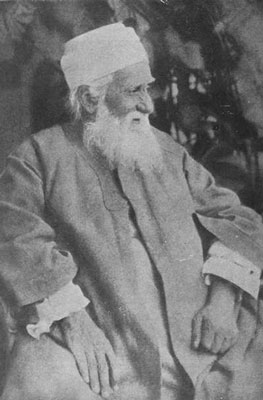
Unless ye must,
Bruise not the serpent in the dust,
How much less wound a man.
And if ye can,
No ant should ye alarm,
Much less a brother harm.
('Abdu'l-Bahá, Selections from the Writings of 'Abdu'l-Bahá, 206, p. 256)
Briefly, it is not only their fellow human beings that the beloved of God must treat with mercy and compassion, rather must they show forth the utmost loving-kindness to every living creature.
('Abdu'l-Bahá, Selections from the Writings of 'Abdu'l-Bahá, p. 158-159)
Preservation of Nature
Bahá'í Scriptures describe nature as a reflection of the sacred... [that] should serve humanity's efforts to carry forward an ever-advancing civilization. However, in light of the interdependence of all parts of nature, and the importance of evolution and diversity "to the beauty, efficiency and perfection of the whole," every effort should be made to preserve as much as possible the earth's bio-diversity and natural order.
(Bahá'í International Community, Valuing Spirituality in Development, February 1998)
The environment
We cannot segregate the human heart from the environment outside us and say that once one of these is reformed everything will be improved. Man is organic with the world. His inner life moulds the environment and is itself also deeply affected by it. The one acts upon the other and every abiding change in the life of man is the result of these mutual reactions.
(Letter written on behalf of Shoghi Effendi, 17 February 1933, Compilation on Social and Economic Development, p. 4)
Unity is essential
Until such time as the nations of the world understand and follow the admonitions of Bahá'u'lláh to whole-heartedly work together in looking after the best interests of all humankind, and unite in the search for ways and means to meet the many environmental problems besetting our planet, ...little progress will be made towards their solution.
(Universal House of Justice, Department of the Secretariat, from a letter dated 18 October 1981 to an individual believer. Quoted In "Conservation of the Earth's Resources". Prepared by the Research Department of the Universal House of Justice.)
Questions for discussion
Could we describe the Bahá’í Faith as an ecological religion?
Can we look for spirituality in nature?
Share a moment when you had a spiritual experience in nature
How might you imagine nature in the Bahá’í civilisation of the future?

Last updated 9 January 2021
